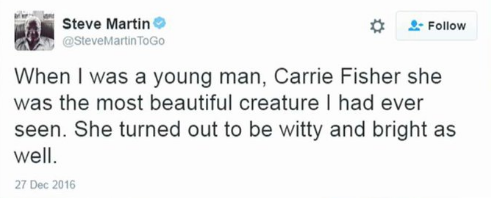By Kent R. Kroeger (Source: NuQum.com, August 28, 2017)
{ Feel free to send any comments about this essay to: kkroeger@nuqum.com or kentkroeger3@gmail.com}
Medical schools often tell their first-year students that, within a few years, half of what they learn in medical school will be wrong – they just don’t know which half. Harvard mathematician Samuel Arbesman named this phenomenon ‘the half-life of facts.’
Reading about Arbesman’s research prompted me to wonder why people on social media are so strident in their political beliefs and so hostile to others that disagree with them, even though much of what we believe today will someday be proven wrong (or at least seriously flawed).
I thought of this question again while analyzing a list of former NuQum.cm Twitter followers. I noticed that when someone unfollowed @nuqum4real it correlated with the ideological content of the newest NuQum.com essay.
Generally, we lose a few followers and gain a few. But sometimes, especially essays with strong ideological content (ex. He may be The Worst President Ever and I’d Vote for Him Again), our Twitter followers start fleeing, and it always correlates with ideological orientation. Twitter accounts with #ImWithHer or #TheResistance hashtags run from the conservative-friendly content and accounts with #MAGA or #LockHerUp run from the liberal-leaning content.
Its may be easy to understand why this happens…but…why does it happen? Really. Is there no enjoyment derived from reading alternative viewpoints? Is there no benefit from understanding why others might think differently from yourself? Not in a condescending way, but in a genuinely inquisitive, “walk-in-someone-else’s-moccasins”-way. Shouldn’t we always be seeking new perspectives on old issues?
Apparently not.
This lament was only deepened after reading an essay in Politico by political scientists Alan Abramowitz and Steven Webster titled: “Negative Partisanship’ Explains Everything.” From their original research article — The rise of negative partisanship and the nationalization of U.S. elections in the 21st century (in Electoral Studies, Vol. 41, March 2016, pp. 12-22) — they summarize their thesis:
“Since the 1980s, there has been a large negative shift in affect toward the opposing party among supporters of both major parties in the U.S. …The rise of negative affect toward the opposing party has contributed to dramatic increases in party loyalty and straight-ticket voting among strong, weak and independent-leaning partisans….Growing party loyalty and straight-ticket voting have led to the nationalization of elections in the United States: there is a much closer connection between the results of presidential elections and the results of House, Senate and even state legislative elections today than in the past.”
Most depressing about their research is their prediction for the future:
“In today’s environment, rather than seeking to inspire voters around a cohesive and forward-looking vision, politicians need only incite fear and anger toward the opposing party to win and maintain power. Until that fundamental incentive goes away, expect politics to get even uglier.”
Somehow our self-esteem has now become dependent on the validity of our political beliefs. Forget that over a lifetime a lot of things we once believed have proven to be false. Penguins, for example, don’t mate for life. And where were you when you first learned the earth doesn’t revolve around the sun? What? You didn’t know that? Yes, it is true. I learned it while helping my 11-year-old son on a science project. The earth revolves around our solar system’s’ center of mass (which is called the barycenter and is usually contained within the mass of the sun…but not always.)
People don’t want to hear anything that contradicts their core beliefs. There is no market for objectivity anymore. There once was when there were only three national news networks and one or two local newspapers. Today, it takes little effort to shelter yourself from media content you find offensive or useless. The content filters on Facebook and Twitter make for happier but less informed and more intolerant people.
The research is still sketchy on this question, but some of the more thoughtful attempts can be found here, here, and here.
One Huffington Post blogger warned readers: “When it comes to the Internet, it’s best not to trust the first source you see. Even if (or maybe especially) it’s coming from a friend.”
I mostly agree with that statement but would modify it slightly: When it comes to the Internet, it’s best NEVER to trust ANY source you see…especially if it’s coming from your idiot friends and family.
[Yes, that includes anything you read on NuQum.com]
One of the great contradictions of our time is that Americans are more comfortable than ever with ethnic, racial and religious differences (or, at least, we think we are), but when it comes to opinion diversity, we’ve lost our appetite.
Opinion leaders (academia, politicians,journalists, writers) lecture us on the theoretical virtues of multiculturalism, but render it meaningless when they try to give it practical application.
Multiculturalism was always a loaded term, poorly defined by academia and subsequently misused, often as a convenient cudgel by both the left and the right to justify their own disdain for the other side.
Social constructs and their supporting institutions today all seem to serve partisan ends — even comedy has been commandeered by the political class. Jerry Seinfeld and Chris Rock won’t do concerts on college campuses anymore. Bill Maher cries more about ‘liberal snowflakes’ than Sean Hannity. Steve Martin has to delete a tweet mourning his friend Carrie Fischer because he noted her good looks before he mentioned her great sense of humor and intelligence.
A former colleague of mine once observed: “David Letterman was funnier when he seemed to disdain Democrats and Republicans.” As funny and insightful as Steven Colbert can be today, we lose something when his nightly monologues are almost exclusively politics and Trump-focused.
Yes, I do miss the good ol’ days when everybody was a reflexive cynic and largely disinterested in politics. That seems now like a healthier society.
Neuro-scientist Sam Harris and Dilbert cartoonist Scott Adams had an interesting podcast on this topic (found here). At one point, Harris makes an insightful comment that captures the social and political dysfunction we see today.
“The fact that politics is so much a part of our lives now is toxic,” says Harris. “It is a sign that something is wrong with our society; if things were good we would not be talking about politics.”
Somehow, we’ve all been driven into political corners that don’t necessarily represent our best interests or our most deeply held beliefs. Social pressure has put us in these boxes and only social pressure will get us out.
Let’s start now. Send a friend request on Facebook to someone whose politics you can’t stand. Baby steps, as they say.
About the author: Kent Kroeger is a writer and statistical consultant with over 30 -years experience measuring and analyzing public opinion for public and private sector clients. He also spent ten years working for the U.S. Department of Defense’s Office of the Under Secretary of Defense for Personnel and Readiness and the Defense Intelligence Agency. He holds a B.S. degree in Journalism/Political Science from The University of Iowa, and an M.A. in Quantitative Methods from Columbia University (New York, NY). He lives in Ewing, New Jersey with his wife and son.

